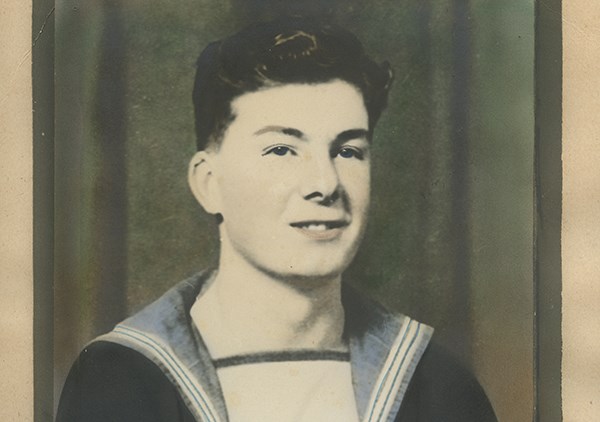When James Crombie signed up with the Royal Navy in April 1941, he joined with fellow Scottish friends even though he wasn’t technically the right age.
“We were 17 years old. We didn’t think we’d come back,” the 93-year-old Squamish resident says.
He recalls his training as hard and the troops only had three weeks to get ready.
During the stretch, the area came under attack, so he was happy to get off of dry land.
“I was glad to get out of there and get on a ship,” he recalls.
Of course, it was not necessarily peaceful out on the waters.
“My first night at sea, skipper said you don’t have to do a watch because you’ve just travelled all night,” he says. “We just got outside the harbour and we got attacked.”
The shells missed them, but the concussion affected the plates on the ship, the Invertay. At this point, the threat in the seas came from above rather than from submarines.
“Any action we saw was enemy aircraft,” he says.
The damage to the ship was enough to force the skipper to bring it in for repairs.
Early on in his service, he was part of a convoy from Aberdeen to the north of Scotland in an effort to keep the water safe from mines.
As time went on, the enemy developed magnetic mines and acoustic mines, Crombie says, which made disarming them a bit more of a challenge.
For about 18 months, the ship sailed in the North Sea and the northern Atlantic Ocean, and the vessel even took part in a decoy mission during the raid on Dieppe in August 1942.
Crombie was later transferred to Chatham and trained as gun layer, serving on the troopship, the Pasteur, from late 1942 into 1943.
The ship was able to travel unescorted from Liverpool to Virginia in the U.S. due to its high speed. In the U.S., he received further training and returned to minesweeping action on a vessel made out of wood that was designed to avoid the magnetic mines.
“I went aboard a minesweeper as one of the crew,” he says.
He took part in missions around Southampton and went to the second front in Europe when it was opened up on D-Day.
From there, the vessel brought him to places like Malta and Italy in the Mediterranean.
There the troops encountered explosive motorboats, or EMBs, in which the enemy would aim for their harbour and operators would jump out before impact and the detonation of the warheads.
“They were close. They were right there,” he says.
He spent the end of the war in Zara in what would become part of Yugoslavia and he was stationed overseas until well after hostilities ceased.
“I didn’t get home until March ’46,” he says. “There was so many people in Europe to get home.”
Crombie moved to Canada in 1952 and he and his family eventually settled in Squamish, where he has become a fixture at Remembrance Days for playing his pipes in the Black Tusk Caledonia Pipes and Drums.



